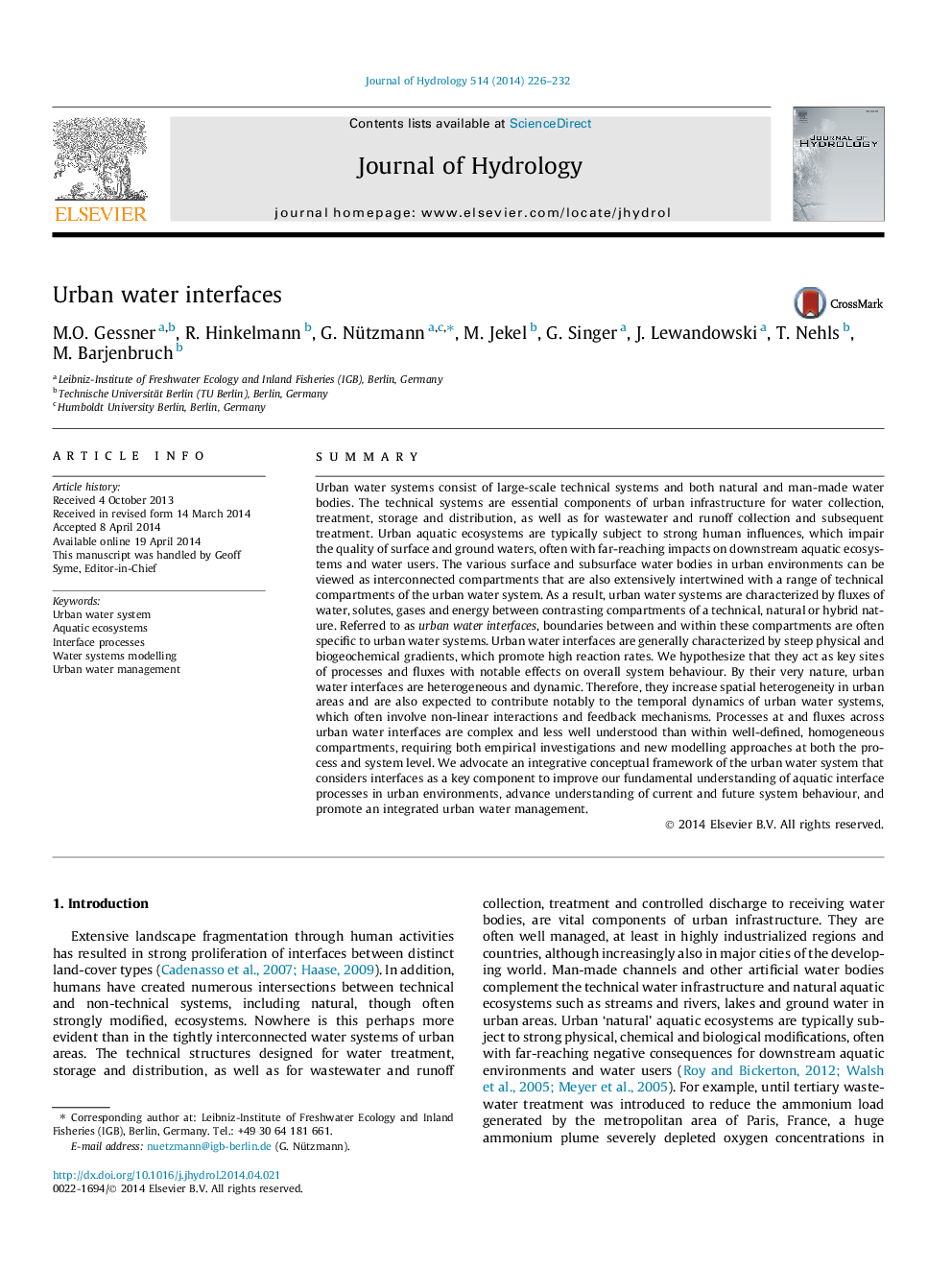| کد مقاله | کد نشریه | سال انتشار | مقاله انگلیسی | نسخه تمام متن |
|---|---|---|---|---|
| 4576017 | 1629934 | 2014 | 7 صفحه PDF | دانلود رایگان |
• We identify boundaries involving compartments of the urban water system as urban water interfaces.
• These urban water interfaces are characterized by steep physical and biogeochemical gradients.
• We regard these interfaces as hotspots of environmentally relevant fluxes.
• We discuss a framework to improve our fundamental understanding of aquatic interface processes.
SummaryUrban water systems consist of large-scale technical systems and both natural and man-made water bodies. The technical systems are essential components of urban infrastructure for water collection, treatment, storage and distribution, as well as for wastewater and runoff collection and subsequent treatment. Urban aquatic ecosystems are typically subject to strong human influences, which impair the quality of surface and ground waters, often with far-reaching impacts on downstream aquatic ecosystems and water users. The various surface and subsurface water bodies in urban environments can be viewed as interconnected compartments that are also extensively intertwined with a range of technical compartments of the urban water system. As a result, urban water systems are characterized by fluxes of water, solutes, gases and energy between contrasting compartments of a technical, natural or hybrid nature. Referred to as urban water interfaces, boundaries between and within these compartments are often specific to urban water systems. Urban water interfaces are generally characterized by steep physical and biogeochemical gradients, which promote high reaction rates. We hypothesize that they act as key sites of processes and fluxes with notable effects on overall system behaviour. By their very nature, urban water interfaces are heterogeneous and dynamic. Therefore, they increase spatial heterogeneity in urban areas and are also expected to contribute notably to the temporal dynamics of urban water systems, which often involve non-linear interactions and feedback mechanisms. Processes at and fluxes across urban water interfaces are complex and less well understood than within well-defined, homogeneous compartments, requiring both empirical investigations and new modelling approaches at both the process and system level. We advocate an integrative conceptual framework of the urban water system that considers interfaces as a key component to improve our fundamental understanding of aquatic interface processes in urban environments, advance understanding of current and future system behaviour, and promote an integrated urban water management.
Journal: Journal of Hydrology - Volume 514, 6 June 2014, Pages 226–232
